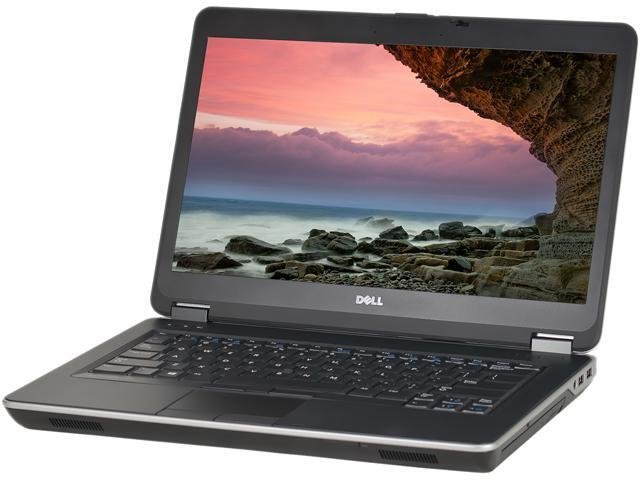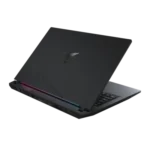i7-4300MQ Benchmark Laptop When we talk about legacy laptop processors that have stood the test of time, the Intel Core i7-4300MQ deserves an honorable mention. Originally launched in Q3 2013, this mobile processor was a part of Intel’s Haswell family—known for delivering solid performance and power efficiency in the fourth generation of Core processors. In 2025, while it’s far from being cutting-edge, the i7-4300MQ continues to spark interest, especially among users looking for budget-friendly laptops, refurbished business machines, or niche DIY projects.
So why is a 12-year-old processor still being discussed today? For starters, the i7-4300MQ was a quad-core chip (with Hyper-Threading), which set it apart from many low-end dual-core CPUs of its time—and even some budget models that followed in later years. It’s also soldered into some of the most durable business laptops from Lenovo (ThinkPads), Dell (Latitudes), and HP (EliteBooks), making it a reliable choice in the used or refurbished laptop market.
In this updated review for 2025, we’ll explore the real-world performance, benchmark scores, and modern-day usability of laptops powered by the Intel Core i7-4300MQ. Whether you’re considering buying an older laptop for light tasks or just want to understand how the chip holds up today, this article covers everything you need.
A Legacy Mobile Chip with Surprising Relevance
You might be wondering—why care about a processor that’s over a decade old? It’s a fair question. But here’s the thing: not every laptop user needs top-tier performance or the latest specs. Many people use laptops for web browsing, video streaming, word processing, and light productivity work. And guess what? The i7-4300MQ still handles those jobs reasonably well—especially when paired with an SSD and 8–16 GB of RAM.
In fact, if you compare this chip to some modern-day budget CPUs—especially Celerons or low-end Pentiums—you’ll find that the i7-4300MQ holds its ground in multi-threaded performance and even beats many of them in everyday tasks. Its Hyper-Threading support, 4 MB L3 cache, and Intel HD Graphics 4600 make it more than capable for basic tasks.
Here’s why it still matters in 2025:
-
Refurbished Business Laptops: Machines like the ThinkPad T440p and Dell Latitude E6540 are still being sold with this chip.
-
Linux Machines: The i7-4300MQ is popular among developers and Linux users who want a cheap, well-built system.
-
Customization & Upgrades: These laptops are highly upgradeable—RAM, storage, batteries, and even wireless cards.
It’s certainly not built for AAA gaming or intensive 3D rendering today, but for specific use-cases, this chip still punches above its weight.
Released in 2013 – Still Used in 2025?
Yes, it sounds unbelievable, but laptops with the Intel Core i7-4300MQ are still being used in 2025—especially in developing countries, schools, repair shops, and by budget-conscious users. Many refurbished laptops featuring this CPU are available online for $150–$300, and they often include robust chassis, high-resolution displays, and solid keyboards.
Why are people still using them?
-
Affordability: For under $300, you can get a functioning business-class laptop.
-
Reliability: Machines like the Lenovo ThinkPad series are built like tanks and often outlast modern consumer-grade laptops.
-
Repairability: These laptops are easy to disassemble, with readily available spare parts and batteries.
-
Operating System Compatibility: These machines can still run Windows 10 comfortably and even Linux distributions like Ubuntu, Mint, and Debian.
That said, they do have their limits:
-
Not ideal for Windows 11 (lack of official TPM 2.0 and Secure Boot support).
-
Slower boot times without an SSD.
-
Weaker integrated graphics for any sort of modern 3D gaming or editing.
But if you can look past those limitations, the i7-4300MQ laptop might still serve as a capable second machine, student laptop, or emergency backup system.
Why Are People Still Searching for i7-4300MQ Laptops?
The continued interest in laptops with the i7-4300MQ processor comes down to three main factors: value, durability, and availability.
-
Value for Money: With inflation and rising prices in the tech market, a reliable laptop under $300 is hard to come by. Refurbished business laptops with the i7-4300MQ hit that sweet spot where performance meets price.
-
Durability: Unlike today’s thin and light consumer laptops, business machines from 2013–2015 were often over-engineered. They were made to last for years, and many are still going strong in 2025 with basic maintenance.
-
Availability of Parts: Since these models were mass-produced, parts like batteries, RAM, SSDs, and motherboards are widely available and affordable.
Here are some common models you’ll find in the wild:
-
Lenovo ThinkPad T440p, W540
-
Dell Latitude E6440, E6540
-
HP EliteBook 850 G1, ProBook 650 G1
If you’re hunting for a functional laptop without breaking the bank, and you don’t need the latest features, laptops with the i7-4300MQ might still be a good option in 2025.
Core Architecture and Manufacturing Process
The Intel Core i7-4300MQ is based on the Haswell microarchitecture, which brought several improvements over the previous Ivy Bridge generation. Built on a 22nm process, it offered a better performance-to-power ratio and improved integrated graphics.
Core specifications include:
-
Cores/Threads: 4 cores, 8 threads (thanks to Hyper-Threading)
-
Base Clock: 2.6 GHz
-
Turbo Boost: Up to 3.3 GHz
-
Cache: 4 MB L3 Cache
-
Socket: FCPGA946 (commonly found in older business laptops)
Even though it’s relatively power-hungry compared to modern U-series processors, it was a powerhouse in its day—and still manages decent multitasking today.


